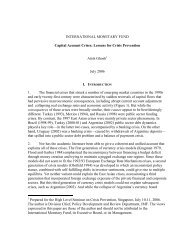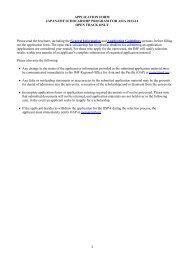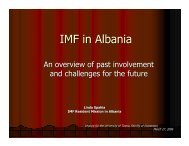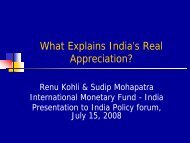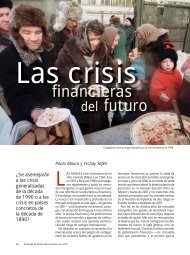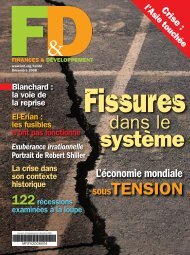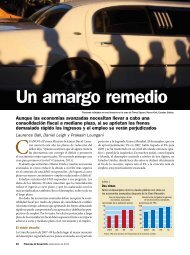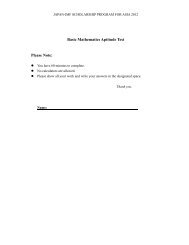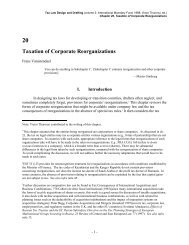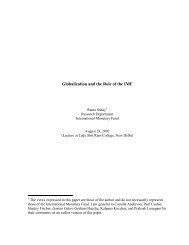Competition Policy and Monetary Policy - Per Jacobsson Foundation
Competition Policy and Monetary Policy - Per Jacobsson Foundation
Competition Policy and Monetary Policy - Per Jacobsson Foundation
Create successful ePaper yourself
Turn your PDF publications into a flip-book with our unique Google optimized e-Paper software.
Mario Monti 15<br />
it has been possible to minimize the extent of the inconsistency<br />
between the two concerns.<br />
I think that this is a subject on which actually more <strong>and</strong> more,<br />
both the monetary <strong>and</strong> supervisory authorities <strong>and</strong> the competition<br />
authorities are working. I mentioned at the end of my<br />
presentation the ICN, the International <strong>Competition</strong> Network.<br />
Last year in Bonn when the ICN met, a list of recommended<br />
best practices was issued on the application of competition in<br />
the regulation of banks. That document goes a long way toward<br />
articulating principles of competition policy that could enhance<br />
the competitive tone of the financial <strong>and</strong> banking markets while<br />
giving due regard to stability. Similarly, I mentioned earlier crossborder<br />
mergers. In the European merger regulation there are<br />
three legitimate grounds for national governments to obstruct<br />
cross-border mergers. These are national security, the protection<br />
of pluralism in the media, <strong>and</strong>, indeed, prudential concerns as<br />
regards financial institutions. It is all too clear that the reference<br />
to prudential concerns can be used in a disproportionate way so<br />
as to create an obstacle to any disliked cross-border merger. That<br />
is why the European Commission is currently working on possible<br />
changes to the banking directive, which would define more<br />
narrowly <strong>and</strong> with a more specific burden of proof the use of<br />
prudential concerns as a good reason for a national authority to<br />
oppose a cross-border merger.<br />
ANDREW CROCKETT: Thank you. Mario, could I take up your<br />
last point <strong>and</strong> the point you made toward the end of your address<br />
concerning international collaboration? Do you think it is either<br />
feasible or desirable for the ICN, as it is now, which I underst<strong>and</strong><br />
is an informal network, to develop in the direction of the organization<br />
that is our host here today, that is to say, in some respects<br />
developing minimum st<strong>and</strong>ards that will be done by agreement<br />
among the relevant authorities such as we have in banking regulation?<br />
And/or to develop in the direction of regular meetings to<br />
discuss current issues as takes place in the bimonthly meetings of<br />
Governors in the BIS?<br />
MARIO MONTI: The creation of the ICN in 2002 came after many<br />
years of discussion between the United States <strong>and</strong> the European





